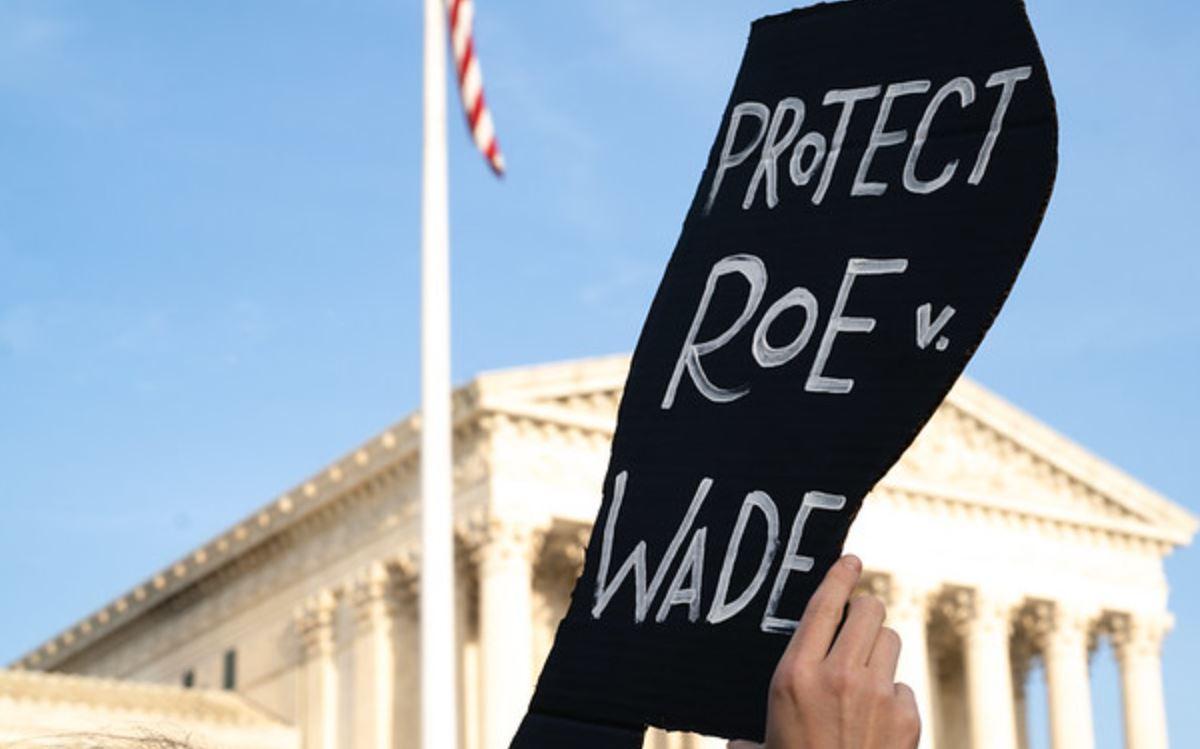
The abortion debate in the United States has become essentially a debate over how much abortion policy ought to be centralized at the federal level. Given that there is no real chance of a nationwide abortion ban, the question of whether or not the US Supreme Court strikes down Roe v. Wade is a question of whether or not abortion policy will become the domain of state and local governments. That is, without Roe to federalize abortion policy, the matter goes back to where it was before 1973: to state and local lawmakers.
Yet, the centralists who demand that abortion policy be mandated from Washington, DC—and only from Washington, DC—can’t seem to stand the idea that maybe people in other parts of the country might disagree with pro-abortion national elites. Yet, tolerating state and local control over an important policy issue is hardly a revolutionary idea. State and local policymakers are generally responsible for lawmaking in many other areas considered to be life or death issues—such as violent crime and the death penalty.
The centralists, however, employ a moralistic argument in order to override any concerns about localism or federalism. The argument looks like this: “Yes, there are some areas where we might allow state some local control over law and policy. But the legal right to an abortion is so important, that any limitation of this right constitutes a violation of human rights. Therefore, we cannot tolerate any local control because this issue is so important.
This is a cunning trick that has been employed in many contexts other than abortion. It has even been used to justify US invasions of foreign countries in the name of humanitarianism. It is also the fundamental ideological justification for imperialism and colonialism: “those savages in those places outside our enlightened metropolis don’t know how to government themselves. So we’ll do it for them.” In the end, however, centralizing political power in this way constitutes its own violation of human rights.
Why The Centralists Won’t Tolerate Local Self-Determination
Certainly, pro-abortion centralists make a variety of arguments to support their position that abortion policy must be made by national-level elites. Many make legal arguments, and claim that a proper interpretation of the US Constitution mandates federal control over abortion. Others make a pragmatic claim, insisting that allowing local control of abortion law will lead to confusion, unrest, or even civil war.
Yet, at the core of these arguments is usually a moral claim: that legal limits on abortion are so morally wrong as to justify federal intervention regardless of concerns over federalism or local control.
For example, writing for The Los Angeles Times, Ronald Granieri admits that maybe some level of local self-determination could be tolerated, but that the “republic has to guarantee some baseline rights shared by all citizens, which imposes limitations on how widely states can diverge.” Naturally, Granieri considers legal abortion to be among these baseline rights. Similarly, in The Nation, Atima Omara opines that Democrats in Congress and the White House must do “whatever it takes” to guarantee the legal status for abortion nationwide. Omara is clear she considers the situation to be of extremely high importance, writing “here we all are staring at the brink of disaster and open season on our fundamental human rights.” Moreover, as Ruth Marcus wrote in The Washington Post last June, allowing states to make their own laws on abortion “would empower them to be agents of oppression.”
In their view, these are high stakes to say the least, and it’s no wonder that the solution proffered by the pages of The Nation is to have the federal government do “whatever it takes” to “guarantee” a baseline of rights. Notably, however, op-eds like these never mention how exactly these guarantees are to be made, or what doing whatever it takes actually entails in practice. In actual practice, this means using the coercive power of the state to force compliance with federal edicts. It means sending federal agents to ensure that local officials do not close down abortion clinics or do not prosecute abortion doctors. But that ultimately requires threats of using coercive force. And if those threats fail, it means actually sending armed federal agents to ensure compliance.
This is why opponents of localism in abortion policy must employ universalist, moralistic terms like “human rights” and “disaster.” It is necessary to show that maintaining the legality of abortion trumps other consideration. The message is clear: whatever our legal traditions or texts might say about state sovereignty, local control, or federalism, that is all nothing compared to the moral imperative to intervene to ensure the protection of human rights.
This position, it must be remembered, should not be confused with merely denouncing abortion restrictions or encouraging activists and voters in these states to resist them. Local resistance to state power in the name of human rights is entirely different from imposing rights from above. The former is a form of liberation from state control. The latter is a form of imperialism.
The Abortion Centralists Use the Language of Imperialists and Colonialists
The centralist argument of human-rights-justify-anything-we-do is dangerous, to say the least, because it essentially says there are no limits on federal power. In those cases, concern for whatever we define to be basic human rights will negate concerns over what we might call “self-determination,” “self-rule,” “local autonomy,” or “constitutional law.”
This language is also fundamentally the same as that which has been used to justify imperialism and colonialism in many cases throughout history. As the Indian human rights activist Salil Shetty has noted, supporters of colonialism long relied on human rights arguments to justify their foreign interventions:
Human rights in the last one-and-a-half centuries were in an odd and artificial way always linked to the project of colonisation itself, before they more genuinely became a part of the reverse effort of resistance against colonialism. … colonialism and early, modern-day human rights fed upon each other.
This was often explicitly the case when European colonizers in the nineteenth century claimed to be imposing foreign rule on indigenous populations “for their own good.” As noted by historian Alice Conklin:
Republican ideas of civilization influenced French policy making in West Africa between 1895 and 1914 in two distinct but complementary ways. First, drawing on the universalist rhetoric of 1789 regarding the right of all people to basic freedoms, republican ideology inspired the French to identify, and take measures to liberate Africans from, forms of oppression that they believed to exist-including African slavery, “feudalism,” ignorance, and disease. … Second, liberal ideals encouraged the French to set limits on the amount of coercion the colonial administration could use against the colonized, especially in the administration of justice and use of forced labor; this was done through the legal means of codification, which in turn created the illusion that basic human rights in the colonies were being respected. Both initiatives conspired equally, and tragically, to legitimate a regime based on force in the age of democracy.
The Americans were similar in their views toward the Philippines. The justification for American intervention there in the early twentieth century was the notion that the United States would “civilize” the Filipinos by “Christianizing” the population—which was already mostly Catholic and therefore Christian—but also to teach the Filipinos to govern themselves in a manner thought to be sufficiently oriented toward American ideas of human rights.
In both West Africa and the Philippines, of course, the process of imposing “respect” for human rights by force required violating the human rights of the locals on countless occasions.
Regional Majorities that are National Minorities: In a DeFacto State of Colonization
But the realities of colonization and the denial of self-determination is not just something that occurs in faraway lands where people look different and speak different languages. Nor is this negated by the existence of democratic institutions.
In his 1927 book Liberalism, Ludwig von Mises recognizes that self-determination is routinely denied even within polities that are democratic. Mises writes:
The situation of having to belong to a state to which one does not wish to belong is no less onerous if it is the result of an election than if one must endure it as the consequence of a military conquest…. To be a member of a national minority always means that one is a second-class citizen.
Within the US’s own political system, entire regions of the country can find themselves in a situation like this when policy is imposed on residents in spite of the political ideologies and values of local majorities. That is, if national majorities are sufficient to keep in power pro-abortion policymakers at the national level—this means anti-abortion local majorities lack self-determination. If this situation endures, then local majorities essentially have no means of exercising any real control over the national government. These local majorities are essentially in the same position as a colony without a vote or the permanent minorities described by Mises.
In a confederation like the United States, there is an easy way to address this problem: limit the power of the central government to only matters of external affairs such as foreign policy; maximize self-government at the state, local, and regional levels; and ultimately allow for secession when compromise becomes no longer feasible.
The rhetoric of the abortion centralizers, however, is going in exactly the opposite direction. The language of “accept our definition of human rights, or else” is typical of what we’d expect from the imperialists of old who insisted those rubes in the provinces couldn’t be trusted with self-government.






